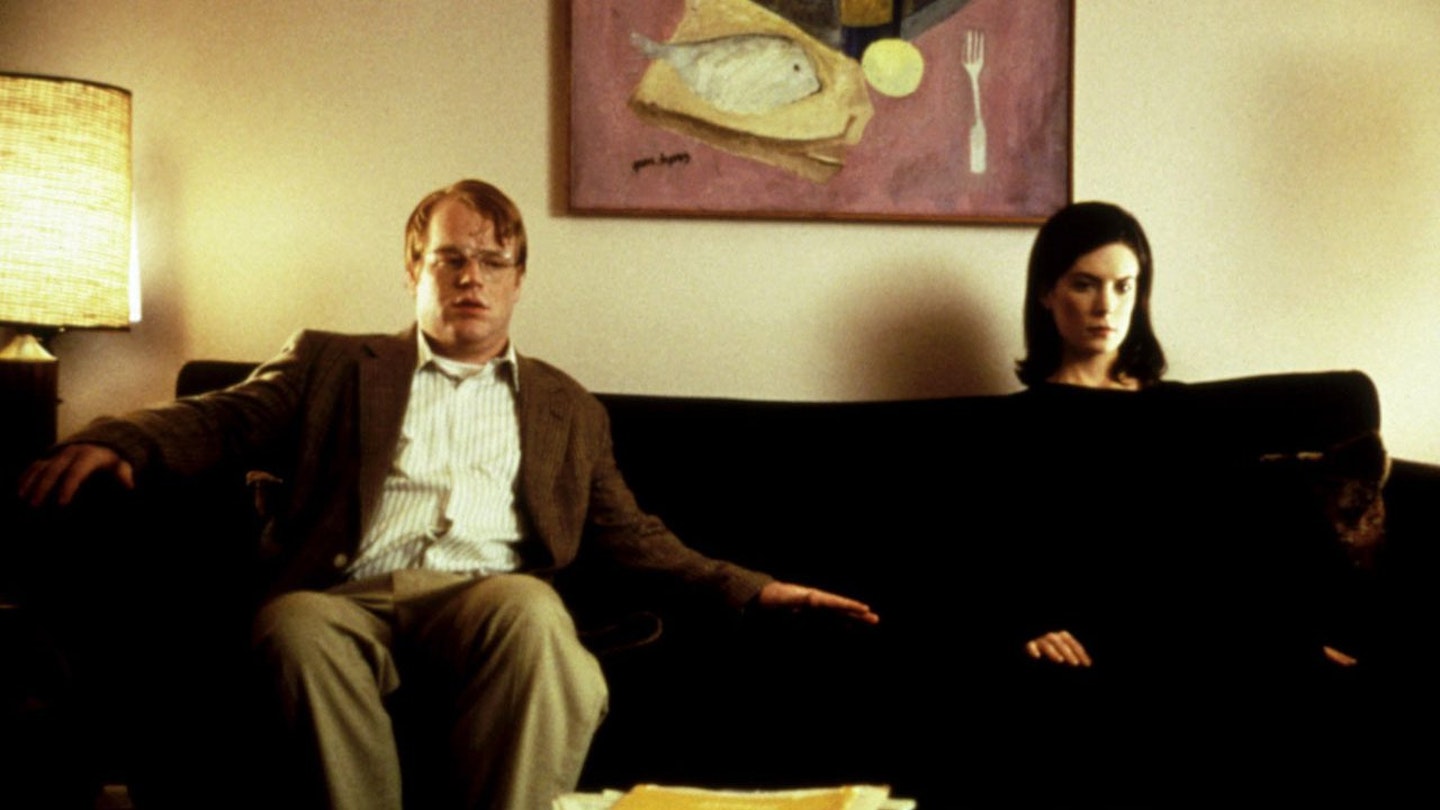Giving a film a title like Happiness somehow suggests that there's going to be precious little on display, and Solondz's follow-up to his indie hit Welcome To The Dollhouse indeed presents a cross-section of modern American agonies as an interlocked selection of characters strive for happiness in all manner of doomed ways. It's a vision of hell, but it has a truthfulness and a humanity that renders it as moving (and, in a weird way, entertaining) as it is horrific.
Striking a balance between making you laugh out loud and cringe inside, the film spirals out from the life of the ironically named Joy (Adams), fresh from killing off a disastrous relationship, introducing a tangle of people somehow related to her: her sisters Trish (Cynthia Stevenson), a home-maker, and Helen (Boyle), a poetess; Trish's husband Bill (Baker), living with unspeakable urges; the girls' parents (Gazzara, Louise Lasser), separating in retirement; Bill's patient Allen (Philip Seymour Hoffman), an obscene phone caller obsessed with Helen; and Allen's neighbour Kristina (Camryn Manheim), a heavyweight obsessed with Allen, who turns out to have another ghastly secret.
Scene after scene conjures up a potent combination of acute embarrassment, existential terror and appalled wit. Most attention is bound to be paid to the plot about Bill, a paedophile whose clumsy arrangement of the rape of his 11-year-old son's best schoolfriend is an against-the-odds masterpiece of beyond-black comedy. Solondz manages to make a paedophile into a real, sympathetic character without ever exploiting the subject or prettifying his behaviour - indeed, Baker's final scene, as he tries honestly to answer his son's questions about what he has done, is genuinely on a par with the "coulda been a contender" speech from On The Waterfront. Many of the other strands are as affecting and powerfully-acted, touching on equally perverse material. Boyle works a strange pathos within a caricatured role, and Gazzara, in his fifth decade as an underrated screen great, does an enormous amount with tiny suggestions. Besides Baker, Adams, Stevenson and Hoffman (as a man so tragically dull even his shrink zones out on him) deliver the sort of work that in a just world would take home Academy Awards.


